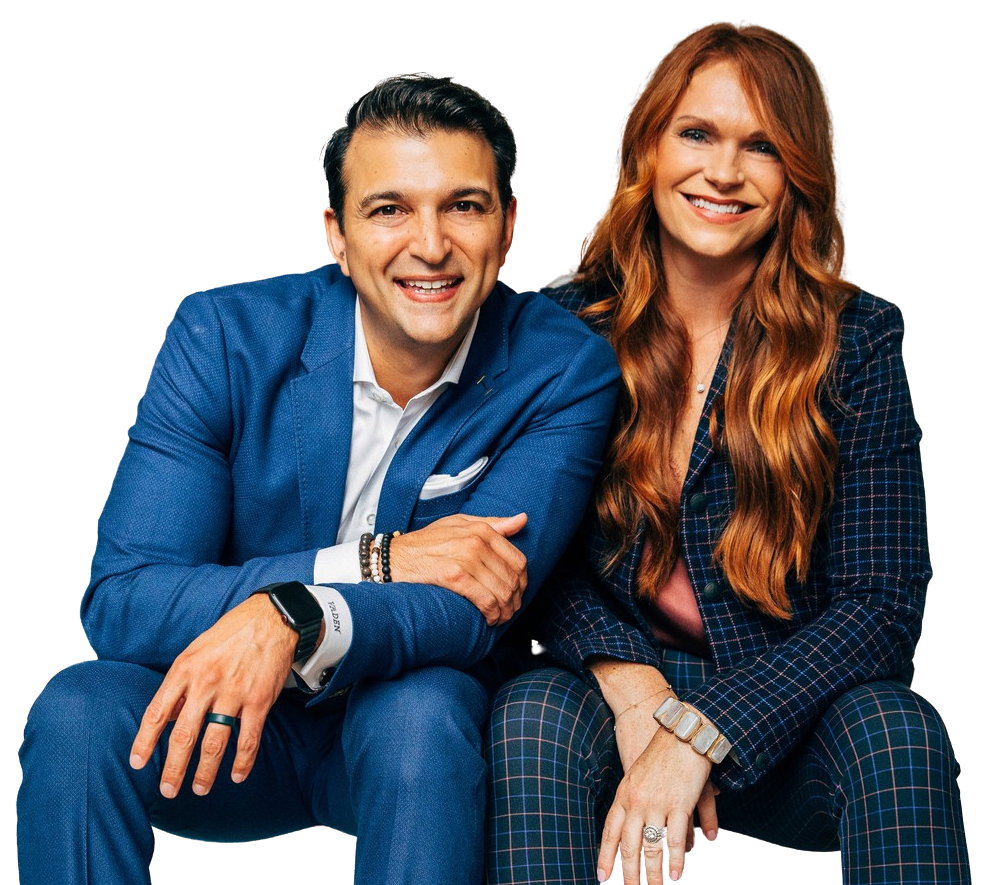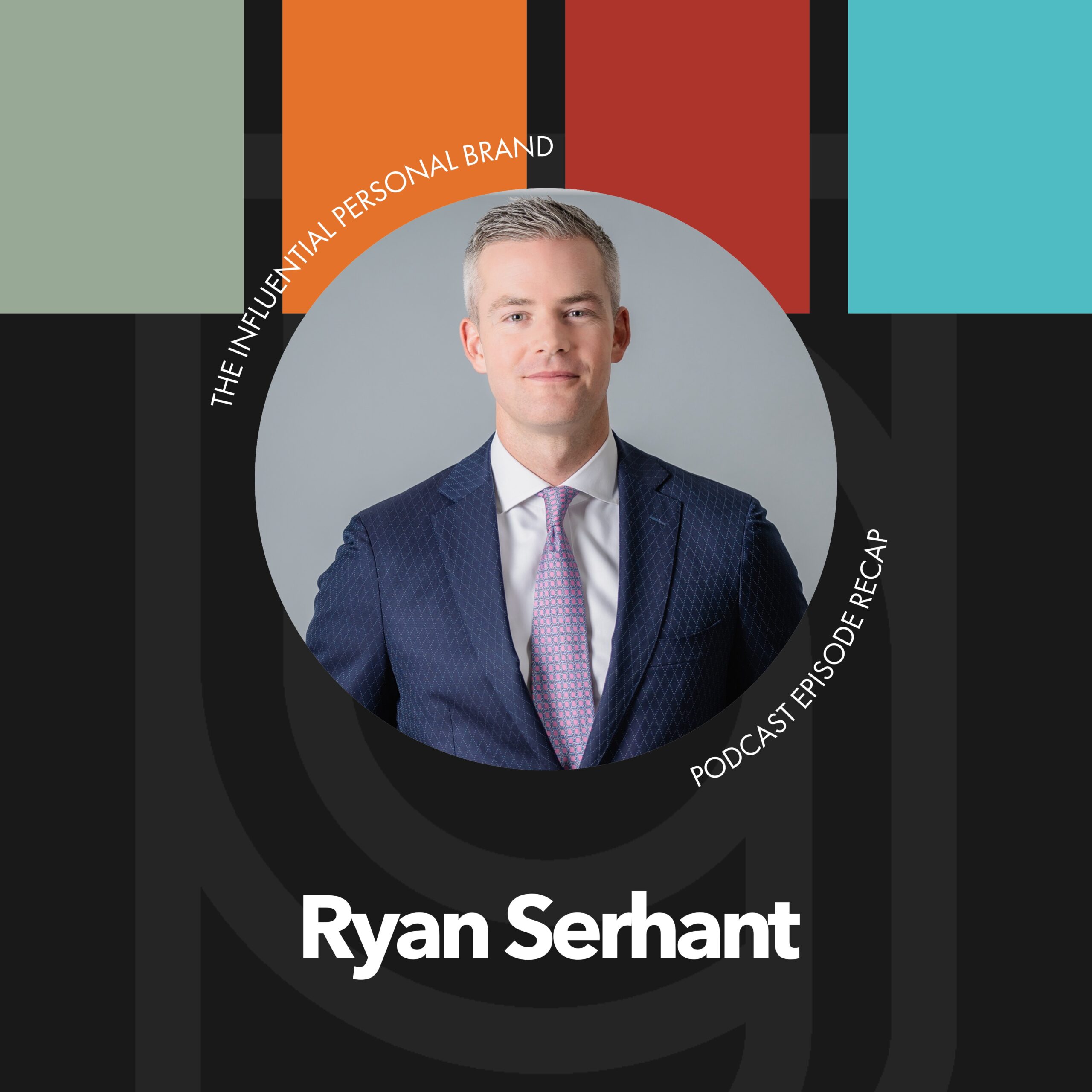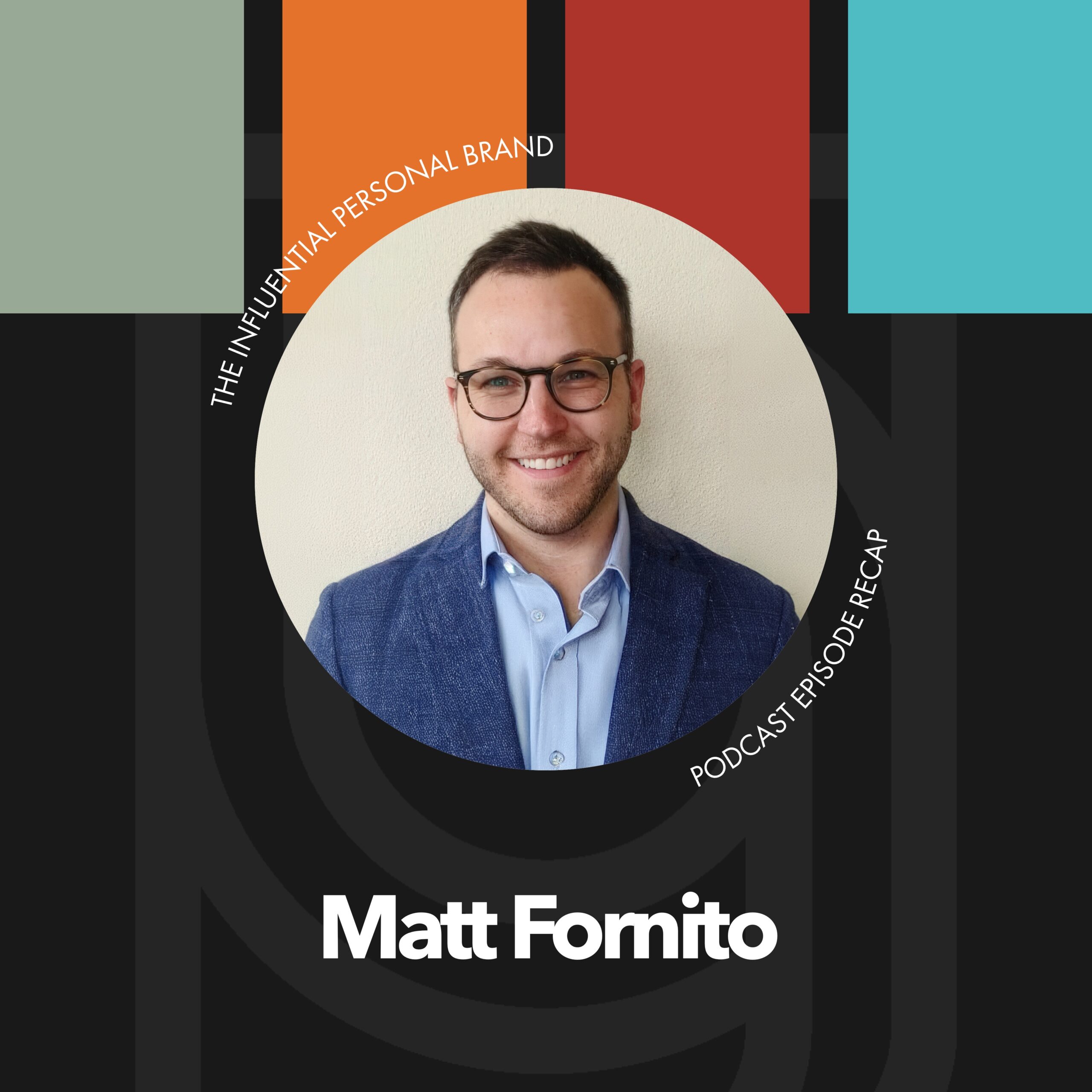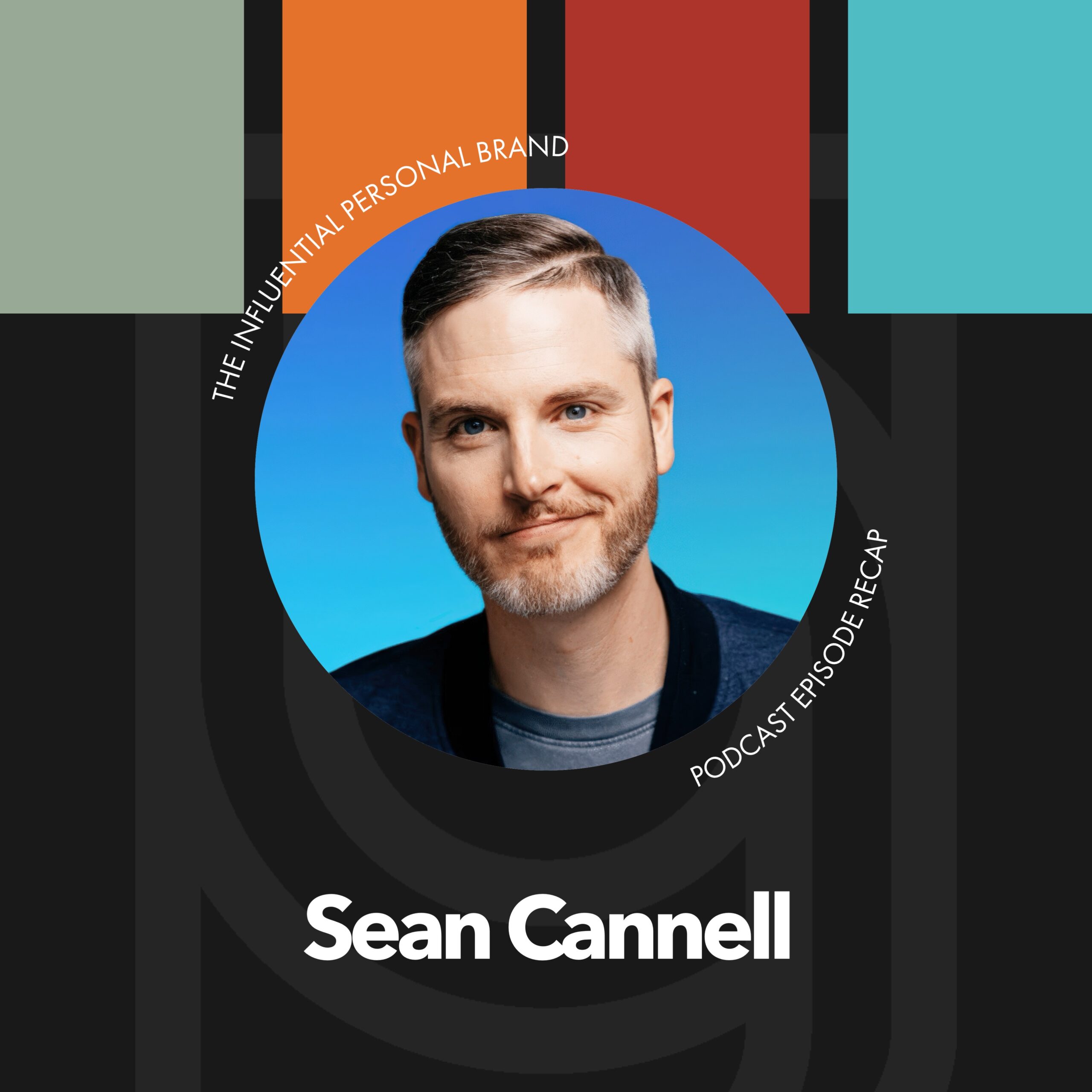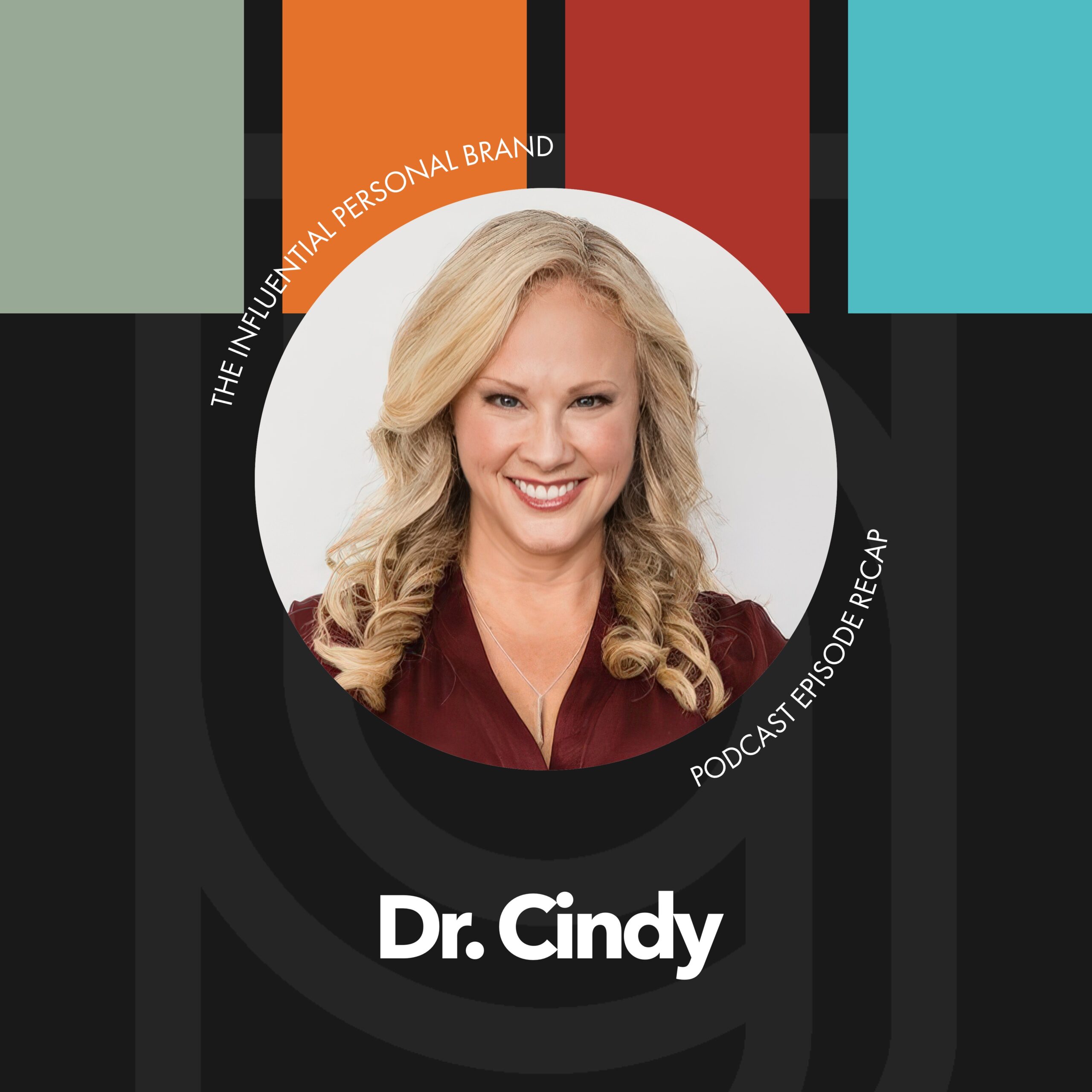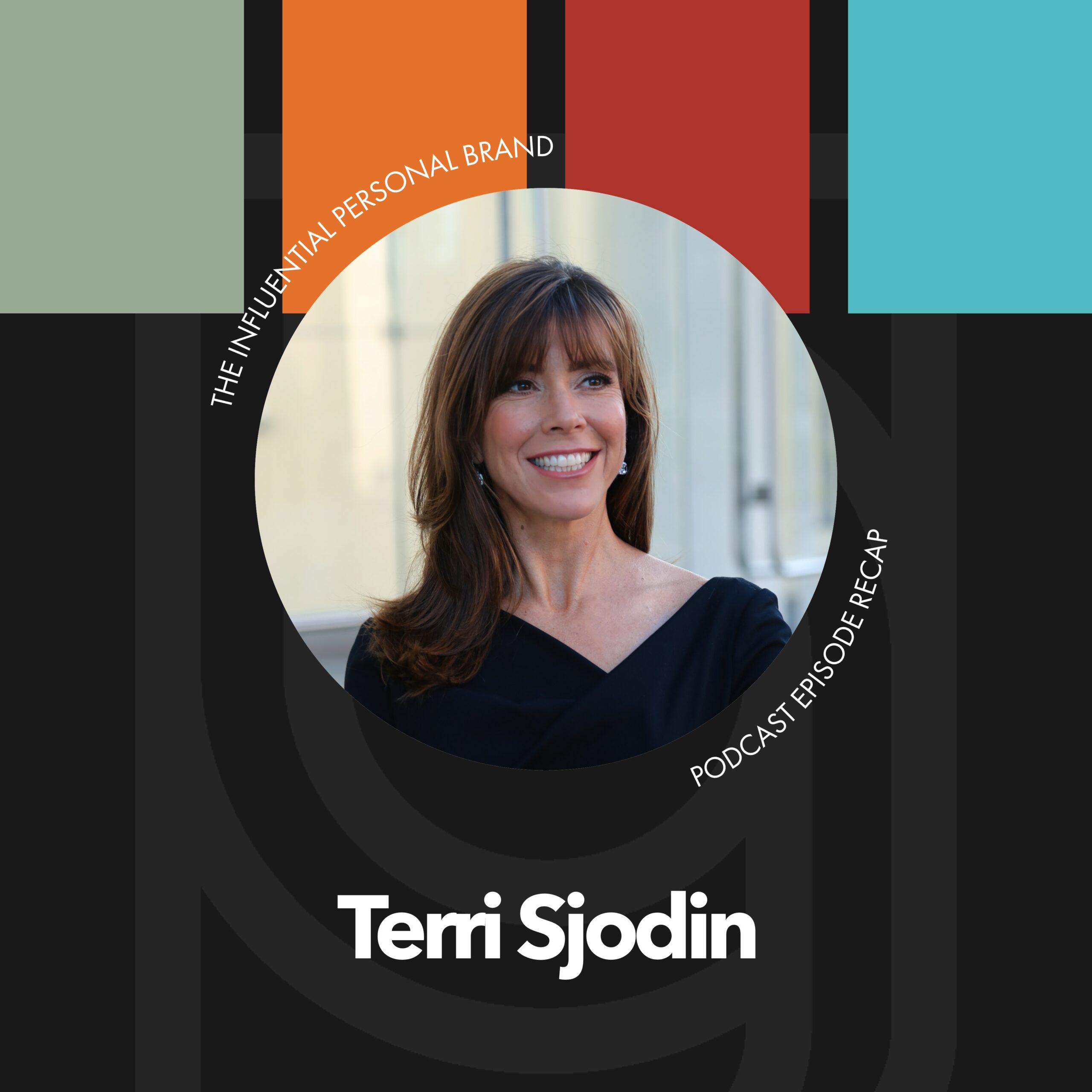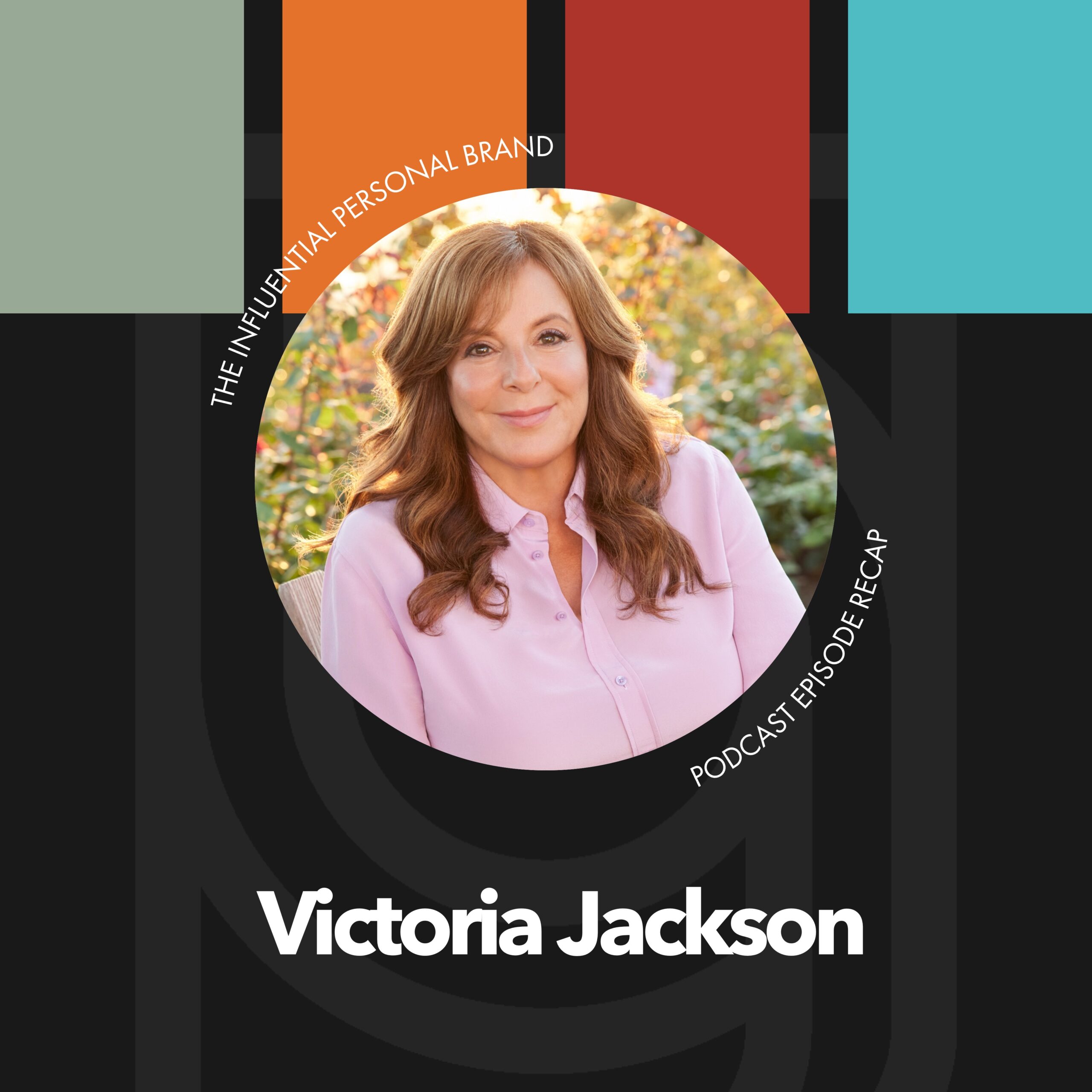I cannot tell you enough how much I love Bob Berg and specifically Bob Burg’s philosophies about sales. You know, it’s been, it’s been a couple of years, really, since I had a focused conversation with Bob and, you know, this interview that we did together, it just reminded me of how much I love him and in the go giver. Okay. So the book that he and John David Mann wrote, and John David Mann is going to come on, we’re going to get him on the podcast here at some point. But that book is probably one of my top five all time business books. And, and, and probably, you know, can I actually say this, I might actually be able to say this. I think the Go-Giver is my, my number two book ever written for salespeople. Like top two, the only other one would be well, how to win friends and influence people.
And then also augmented Dino’s greatest salesman in the world, but Go-Giver is right up there. Like if you are in sales and, you know, we haven’t talked as much about sales on this podcast. I mean marketing and stuff like that, but like direct, you know, sales, sales, sales, as we did in this episode, which I love, I mean, this is sales was how I started, like sales is where I came from. I, I did sales first and then was a speaker and then was an author and then was an entrepreneur and then was, it was a marketer. And the, the, the takeaways from this episode are so good. Like for me to come up with three, I actually really had to, to focus hard and, and, and narrow them down. Obviously this is the recap edition of the interview that we did with Bob Burg.
Obviously it’s just me no, AJ this week. And I’m actually, I’ve got a lot to say about this, so it’s okay because I just, I think people sell the wrong way and there’s so much out there about how to sell that I just disagree with. And, and I, and frankly, I haven’t done. And I think there’s been so many times in my career where I haven’t fit in as a salesperson because I was not willing to compromise my reputation or my integrity just for the sake of revenue and, and Bob, you know, that’s what Bob, Bob teaches to do it that way. And so anyways, so let’s give you, let’s just dive into the, the three takeaways before I just rant here nonstop. All right. So number one thing that he said, or the first thing that really stuck with me is in a free market, you have to realize that people only buy things because they believe it’s in their best interest to do so.
It’s really, even though that should be obvious. A lot of times it’s not obvious because you know, like I’ve, I’ve heard people say people buy because they like you and they trust you. That’s not true. People don’t buy because they like you and trust you, people buy because they think that what you have is good for them. And it helps if they like you and trust you, and they might not buy from you if they don’t like you and they don’t trust you, it’s going to decrease the likelihood that they will buy. But even so some of us will still buy things. If we believe it’s in our best interests, even if we don’t like the person now, not, not as often. Right. And that is somebody not liking you and trusting you is a very big barrier to have to overcome, but either way it’s, they are buying because they believe it is in their best interest to do so.
And so your job is to help illustrate that for them. And I wouldn’t even say that way, like when I, when I think of this and I’m so excited, y’all like I don’t think I’ve shared this with you, but we have an event called pressure-free persuasion that, you know, we’ve been working on here for a couple of years since we started brand builders group and we haven’t taught it live. And we’re about to, it’s coming up for the first time. And so I’ve been like diving into, you know, really the first time ever in our life that, that Aj and I have put our actual personal sales philosophies into a training program, and it’s going to be so killer. And it’s so online and on target with, you know, this interview. And it’s all about serving the best interest of the prospect. And it’s, you know, I say illustrating that because if they’re going to buy, you want to illustrate it.
But I don’t even know that illustrate is the right way. Cause that illustrate basically means that like I’m drawing it out for them and I’m showing them how that’s in their best interest, which is true, but it’s a level deeper than that to go. Actually, I’m not trying to convince them. This is in their best interest. I’m not trying to show them how this is in their best interest. If you do pressure-free persuasion, which is what we teach. You’re actually legitimately trying to figure out if what you have is in their best interest. And that’s a whole nother level. Like we actually believe that you shouldn’t always sell everybody and that the goal isn’t to sell everybody. And I know that, I mean, gosh, like we may not get hired for a sales training from a lot of people, but I believe you, you make more that way.
Like you make more sales by genuinely being interested in discovering if what you have can legitimately help the person not look like it can help the person not pretend to help the person not convince the person that what you have may help them, but that it legitimately and authentically, and truthfully actually serves their best interest. And nobody does that. Like nobody does that. Salespeople are. So self-centered they think about I’m going to make the sale. What do I need to say to convince this person? Like, what are the magic words that I can use to change this person’s mind? And it’s like, what, like what that is so manipulative, that is not what sales is. At least it’s not what we think of sales. Let’s just say this way. It’s not what pressure-free persuasion is. So we don’t, I guess, own the word sales, but it’s not how we do sales and it’s not how we teach you to do sales and how we teach our team to do sales and how we teach the personal brands that we work with. And that we coach to do sales. It’s actually going, can I really help this person really? And so it’s important to understand that that is the goal. That is the objective and what we’re seeking. We’re on a mission for truth. We’re not on a mission for a transaction.
You understand we’re on a mission for truth. We’re not on the mission for a transaction. The truth is, can I really help you? If yes, then you should buy. If no, then you should not. It’s not that I’m on a mission for a transaction, which is what do I have to get you to do to say, yes, that’s not, that’s not, that’s not how we roll. This is not how we roll. Right? So you know, again, it’s one reason why we got out of the sales training business because we didn’t want to have to tell every single person that they should make every single sale every single time. And that all that matters is your revenue and your sales and your numbers and that your, your worth is determined to how much your sales is. We just don’t believe that. So this is probably a defining moment in a defining episode, I would say about who brand builders group is and how we are different.
And we’re not trying to differentiate ourselves for the purpose of differentiating ourself. I’m saying, this is what we believe that not every person should be sold and that it’s not a game of winning and losing. It’s not on a mission for a transaction. It is on a mission for truth. And it is about the best interest of the person that you’re talking to. And Bob believes, and I love that. Like there’s, I spent my whole life in sales and I can count on less than one hand. The number of people who teach sales, who actually legitimately teach that especially, you know, Bob has, has had such incredible career. So that’s the first thing is make sure you realize that the only reason they buy is because they believe it’s in their best interest to do so. Number two, again, Bob said a lot of this, some of this I’m adding color in, but we’re aligned here. The target is not making more money. The target is serving other people.
If you aim for serving other people, money is a reward that comes like the reward comes in the form of money, but we’re not aiming at money. If I’m aiming at making money, then serving people is ancillary. And I may or may not do that because it’s subservient to making money. We have to flip that. We got to switch that we have to turn that inside out, serving people is the target money is the reward. It’s not that money is the target. And maybe we serve people and maybe we don’t, it’s it’s never about the sales person. It’s always about the prospect. It’s always about legitimately helping them. Now, some of you, you know, you may go, yeah, I’m done listening to brand builders group because you know, they’re not going to help me make money quickest. And you know what I would say, in some cases that’s actually true.
We may not be the people who teach you how to make money the fastest. But what I would say is we’re the people who teach you how to make the most money. The longest, because this is about reputation. We’re playing the long game and don’t hear what I’m not saying. I’m not saying you shouldn’t sell. I’m not saying you shouldn’t close the deal. I’m not saying that people don’t need help making decisions. They do. We will teach that and talk a lot about that when we get to pressure-free persuasion in the course. But what I’m, what I’m saying is that service is the objective. The money is the by-product of that. And term, it will happen, but you never sacrifice long-term reputation for short term revenue. We believe that you shouldn’t, but that’s not what most people who teach sales believe it’s the opposite. Most of sales is revenue at all costs.
Revenue is your worth. You’re as good as your last sale. Like, you know, it’s only the top producers who matter the most like it and it’s, and it’s going, we’re playing a different game. We’re playing a longer term game that we’re investing in reputation. We’re investing in trust, we’re seeking truth. We’re going after service. We allow money show up as a by-product of that. And yeah, that’s what we just believe so far. It’s worked out pretty good for us. You know, maybe we would have made more money. Maybe we would have made more money in our careers. I’m specifically speaking to, to me and AJ right now. But I don’t think so. I mean, it would be pretty hard pressed. I mean maybe, but even if we did, we don’t care because it’s not worth it. It’s not worth, it’s not, it’s never worth a compromise of integrity just to make more income.
It’s never worth a compromise in your reputation just to make more revenue ever. At least that’s not what we believe. And I don’t think that’s what Bob believes. And, and to hear Bob say, it gives me conviction. Right. And I’m just like, man, that that’s that’s, that’s it. That’s what we believe is different. All right. The third thing I want to highlight about Bob, which I love, which is his personal brand journey. And you know, if you, if you, how do you make money quickly as a personal brand? Okay. So let’s now let’s flip and go, okay, got it. Love service. Also need to make some money, right? Like that, that is true. Okay. Again, we were good with money. Like we love, we want money, right? It’s not like we don’t want money. We want money. We want income. We want sales. Okay.
I’m not saying we don’t I’m saying that’s not number one. Now let’s flip it and go, how do we make some sales? Like, how do we make, how do we make some money, man? And here’s what I, here’s what I want to highlight about Bob’s career and what I want to tell you. Well, before I tell you what this is, this is the third takeaway. Bob built his career on this. He says it in the interview. Bob built his career on this. Tom Hopkins, Brian, Tracy, Tony Robbins. They also all built their career on this. We have built our career on this ed Tate, who is a good friend of mine, who is a world champion of public speaking, built his career on this Mark Sanborn built his career on this. So many of the top performing highest income earners, most notable award winners in this profession built their career on this one skill.
And Bob mentioned it, and this is what it is. You learn to speak for free and sell at the back of the room, speak for free and sell at the back of the room. So many of the greatest teachers, speakers, influencers, personal brands authors, whatever you want to call them. So many of, of the highest paid speakers in the built their career by speaking for free and selling at the back of the room, because it’s a lot easier to get in front of the audience. If you don’t have to charge a fee to get there, right? Like now again, don’t hear what I’m not saying. I’m not saying that you shouldn’t one day charge a speaking fee, right? I am at a stage in my career where people pay a a pretty good bit of money, right? Like we’re, we’re not, we’re not rolling in Oprah dough or, you know, or, or Gary, Gary Vaynerchuk DOE, but we get paid a pretty good amount of money to stand in front of some pretty large audiences.
But how did we get there? I spoke for free 304 times, 304 times before I got a legitimate speaking fee. Now, does that mean I spoke, I never made money for my first 304 speeches. No, we built a multi-million dollar business speaking for free. We built an eight figure business speaking for free. This was how we started our last company, because it’s the same model that Brian Tracy and Tom Hopkins and Tony Robinson, Jim Rhodes, like it’s the same model that so many of the legends in this industry have used. You go speak for free and then you offer something for sale. And even when I say offer something for sale, like when you think about it, right? You, you know, our mind goes to like sell a book at the back of the room or sell a course. You know, it used to be like sell CDs or sell tapes, and then it was CDs and then it was DVDs.
And now it’s like sell a course and that all works. That that can all be true. But it can be selling tickets to an event we’ve done that we’ve, we’ve sold millions of dollars of tickets to events after doing free presentations. It could be selling but, but, but, but it also could be selling coaching programs, consulting services. If you’re a financial advisor, if an anybody in the professional services industry, you go speak for free. And, and when we say sell at the back of the room, there’s two types of offers. So we teach this in our revenue engine course, there are soft offers, which are offers that you make, which are for people to take the next step, but it’s not for money. A soft offer is like schedule an appointment or request a call. And then there are full offers, which are to the point of a financial transaction.
So, you know, come to the back of the room and give me your credit card. So that’s the difference between full offers and soft offers. Most of the money we’ve made in our career has happened from soft offers. Well, I guess I can’t say that because it, in a, yeah, I mean, in our last business, we made a lot of full offers. Like we actually spoke for free and we’ve closed in the back of the room now. So, so you go, how does this apply to me? Because if you’re a, if you’re a cosmetic surgeon or you’re an accountant, or you’re a lawyer, or you’re a financial advisor, or you do direct sales, or you’re an author, a coach, a speaker consultant trainer, all of us can go speak for free and sell at the back of the room. This is the fastest path to cash.
This is the single greatest, most powerful mechanism there is for monetizing a personal brand. Now, if you can get paid to speak and you can sell at the back of the room even better. And, and there’s a lot of delicacy and a lot of tact and a lot of nuance and a lot of tremendous skill and psychology for making full offers. You know, it’s very easy to come across as pushy and slimy from stage. If you’re making a full offer, if you’re asking a room full of people for their credit card, all at the same time, there is a lot to learn about how to do that, right. Something that we know a lot about it. And we teach, we actually teach that skill in world-class presentation, craft how to close a room full of people which is very different from one-on-one sales, which is what we teach in pressure-free persuasion.
But a soft offer is easy. Anybody can do it. In fact, here’s another distinction I want to make for you. The word speaking, right? You might hear the word speaking and you think of people like me. I stand on, you know, I get on these stages. There’s sometimes there’s tens of thousands of people in the room. Well, you know, that may not be what your daily life looks like. It probably does it like, there’s not a, there’s not a ton of people who do that, but the way that I built my career and we built our career and, and AIJ, and I have built our various companies you’ve been involved in is by speaking to small rooms of people between like a smallest three people. And it usually like three to 15 and going out and speaking. So you can, it’s not auditoriums and arenas full of people.
It’s not giant conference rooms. These are small office built, you know, office buildings and their chamber of commerce meetings. And they’re, you know, Kowanas clubs and rotary clubs and, and just a small company know pulling, going in and speaking at their weekly meeting. I mean, that’s how Tony Robbins sells all of their event tickets, or they used to the yeah, I say that not, not knowing Tony and not knowing much about their, their internal operations, but that is how they, they built their company. Cause that’s been the model, but here’s the other thing, not only is speaking, does it not require big audiences. It also doesn’t require in person audiences. Ah, they can be virtual audiences. They are webinars. What is a webinar? Right? People like, Oh, webinars, which they’re not new anymore. But 10 years ago it was like all the craze, Oh, webinars, what is a webinar webinars speaking for free and sound something at the back of the room.
It’s the exact same thing it’s been around for decades. That’s why it works by the way. That’s why we teach you how to do it. And we, that’s why we encourage one of your first funnels should be quote unquote, a webinar funnel. But if you’re not an information marketer, you know, you might not think of it as a webinar funnel. You might think of it as a free online training or a masterclass or a web class or a video or whatever. But it’s the same thing you’re giving value for free in the form of a video. And then you’re offering something for sale at the end, also going and doing podcasts too. Where is the same thing you’re speaking for free. This is how we launched brand builders group. How did we get our first dozen customers? Right? We went on podcasts and for free, when I speak on a podcast it’s for free, right?
Usually I’m not getting paid. There’s a couple of times that’s happened, but usually it’s like, I’m there because I have a relationship with the host or I want to, or I like what they’re up to, or they’ve got a great audience and you know, blah, blah, blah, blah, blah. But you’re speaking for free. And then you’re selling now in a podcast interview, you almost never hear full offers, right? You don’t hear very often because not many people would listen to a podcast if there was a full offer, every episode. Right? But what you do is you do a soft offer, you know, go request a call. That’s a soft offer. Here’s my Calendly link or go to my website. And there’s a lead capture, you know, or go to this landing page and download a free opt-in. Those are soft offers. They’re they’re steps towards a sale, but they’re not, they’re not all the way to the sale, but webinars, podcasts, you know, now there’s this you know, challenges are like all the craze like, Oh, there’s a challenge.
What does a challenge? A challenge is a Facebook group of people. It’s just the audiences inside of a Facebook group instead of on a webinar or instead of on a podcast or instead of in a live room and you go low, you go live, which is a video comes on and you speak for free four or five days, seven days, 21 days, whatever the challenge is. And then what do you think they do at the end? They sell, speak for free. It’s a lot easier to build an audience, get in front of an audience, be invited onto a stage. If you remove the barrier of, of a speaking fee and you can still monetize your time. So you’re speaking for free, but it doesn’t mean you’re not getting paid. You’re just not getting paid to speak. You’re monetizing your time still, but you’re doing it through either full offers or soft offers at the back.
And anyways, I, I know I’m harping on this, but it boggles my mind, how people miss this. And if you look at the brand builder journey, and I know, you know, we don’t do a lot of our own training here on the podcast, but when we teach the brand builder journey, if you go to our website we have this, you know, when you click on our process, we map out our brand builder journey there. And we have, we have 12 core courses. We divide them into four phases. So our curriculum is, is one curriculum divided into four phases. And each of the four phases divided into three courses. Phase one is finding your brand DNA, which is creating, finding your uniqueness, finding your positioning. And we get clear on who you serve. What is unique about you? What’s your position in the market and how do you make money?
Well then course two in phase. One is captivating content where we help extrapolate your uniqueness into a body of original thought leadership, frameworks, and intellectual property. We draw out of you, your expertise into a body of work that happens in phase one course, two captivating content. And then phase one course three is world-class presentation craft, which is where we take that content. And we prepare it for the spoken word. Now, some people say, well, Rory, I need to make money faster. And they go, I want to get to funnels faster. I want to do paid ads faster. I want to monetize faster and they’re, and they’re missing it, right? Like we do all that stuff too. You’ll get there. But the fastest way to monetize is to go speak for free. It is the fastest way because people get to sample you. You’re reducing the, the, the, the barrier of entry to get hired because you’re not, you don’t have a fee, right?
You’re making it easy for them to hire you. You’re standing in front of that audience, you know, or presenting live or virtually or whatever it is. And they get to sample you for free. So they get to trust you first. And then they buy for you. This is a skill you have to master, and I’m not saying you have to master the full offer skill. That’s a hard skill. There’s risk involved there for sure. There’s a lot of psychology, a lot of tact. And if you’re standing on a stage asking people to pull out their credit card, you definitely need to go through some serious training with us. Cause it’s delicate to do. It can totally be done. It’s amazing. Like you can, I mean, you can, you can sell tens of thousands of dollars, hundreds of thousands of dollars in a room and actually collect the money on the spot.
Super powerful, but verb that’s pretty advanced, right? And so there’s a good, there’s a good or chance. There’s a more likely chance that what you’re going to start with is soft offers, which is great. That’s still a measurable deliverable, you know, drive towards revenue. How many people requested a call scheduled an appointment downloaded my opt-in, you know, my, my lead magnet gave me their business card. That’s a proactive step in the sales process. Speak for free, give value for free serving others is the target. You know, it’s about them. It’s not about you all of these great, amazing, wonderful takeaways from the one and only Bob Berg, who is one of the few people that I can recommend unabashedly when it comes to, if you want to learn how to sell this is somebody that we are aligned with that we believe in. And that love. I mean, Bob has been such an encouragement to me over my career and gosh, the Go-Giver is just one of the best books ever. And you know, Bob does this pour into people, give first serve first help first and allow money to be the by-product that will inevitably show up sooner or later. Keep coming back here to the influential personal brand podcast.



